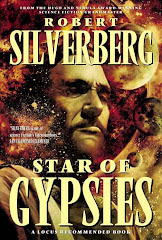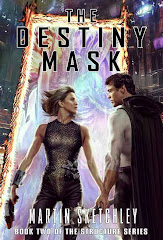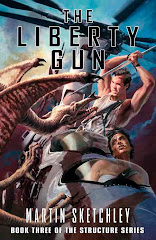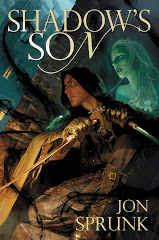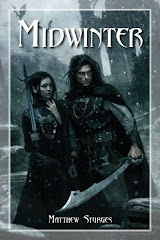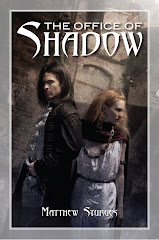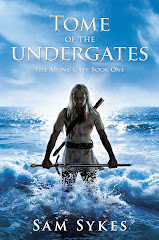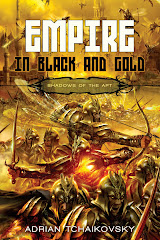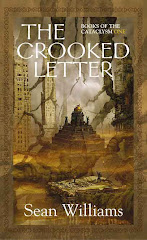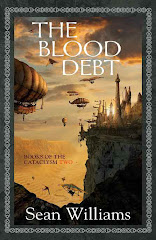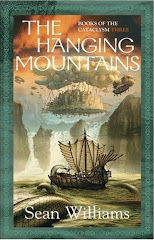 Mark Chadbourn embarked on an unprecedented depth of historical research and a detailed examination of real-world prehistoric sites around the UK to provide a compelling background for his Age of Misrule series. His studies bring to light hidden connections among myth, the Arthurian romances, folklore, and history, challenging the reader to draw the line between truth and imagination. The sizable excerpt from Darkest Hour below demonstrates why SF Site says that this is an "edge of the seat, highly credible, page turner which I found compulsive reading ...essential dark fantasy.”
Mark Chadbourn embarked on an unprecedented depth of historical research and a detailed examination of real-world prehistoric sites around the UK to provide a compelling background for his Age of Misrule series. His studies bring to light hidden connections among myth, the Arthurian romances, folklore, and history, challenging the reader to draw the line between truth and imagination. The sizable excerpt from Darkest Hour below demonstrates why SF Site says that this is an "edge of the seat, highly credible, page turner which I found compulsive reading ...essential dark fantasy.”Darkest Hour
Age of Misrule 2
Mark Chadbourn
Age of Misrule 2
Mark Chadbourn
a prologue life during wartime
May 2, 8 a.m.; above the English Channel:
“Somebody must have some idea what’s going on.” Justin Fallow fiddled uncomfortably with the miniature spirit bottles on his tray as he watched the dismal expressions sported by the air stewardesses. It was amazing how little fluctuations in the smooth-running of life were more disturbing than the big shocks. Those looks were enough to tell him something fundamental had changed; he had never seen any of them without those perfectly balanced smiles of pearly teeth contained by glossy red lipstick.
“I wouldn’t lose any sleep over it. Everything will be back to normal in a few days.” Colin Irvine stared vacuously out of the window at the fluffy white clouds. The reflection showed a craggy face and hollow cheeks that seemed older than his years. The trip to Paris had been better than expected; the business side tied up quickly, then two days of good food and fine wine, and one brisk night at a brothel. His head still felt fuzzy from the overindulgence and he would be happier if Justin shut up at least once before the plane landed.
“Well, I wish I had your optimism.” Fallow’s public school accent was blurred by the alcohol and he was talking too loudly. He flicked back the fringe that kept falling over his eyes and snapped his chubby fingers to attract the attention of one of the stewardesses. “Over here, please. Another vodka.”
“I like a drink as much as the next man, but I don’t know how you can get through that lot at breakfast,” Irvine said, without taking his gaze away from the clouds.
Fallow slapped his belly. “Constitution of a horse, old chap.” When the vodka arrived, he brushed the plastic glass to one side and gulped it straight from the bottle.
“Steady on, eh?” Irvine allowed himself a glance of distaste.
“But what if it isn’t going to be sorted out in a few days?” Fallow drummed his fingers anxiously on the tray. “You know, we have no idea what’s going on, so how can we say? A sudden announcement that all air traffic is going to be grounded indefinitely doesn’t exactly fill one with confidence, if you know what I mean. Now that sounds serious.”
“We were lucky to get the last flight out.”
“I mean, the country could be on its knees in days! How will business survive?” His startled expression suggested he had only just grasped the implications of his train of thought. “Never mind your bog-standard business traveller who has to get around for meetings—they can muddle through with a few netcasts and conference calls in the short term. But what about import—export? The whole of the global economy relies on—”
“You don’t have to tell me, Justin.”
“You can sit there being sniffy about it, but have you thought about what it means—?”
“It means we won’t be able to get any bananas in the shops for a while and international mail will be a bastard. Thank God for the Internet.”
“I still think there’s more to it than you think. To take such a drastic step . . . Trouble is, you can’t trust those bastards in the Government to tell you anything important, whatever political stripe they are. Look at the mad cow thing. It’s a wonder we’re not all running around goggle-eyed, slavering at the mouth.”
“You obviously didn’t look in the mirror last night—”
“This isn’t funny. Go on, tell me why you’re so calm. What could cause something like this?”
“Let me see, Justin.” Irvine began counting off his fingers. “An impending strike by all international air traffic control which we haven’t been told about for fear it causes a panic. You know how much pressure they’ve been under recently with the increase in the volume of flights. Or some virus has been loaded into the ATC system software. Or the Global Positioning Satellite has been hit by a meteorite so all the pilots are flying blind. Or all those intermittent power failures we’ve had recently have made it too risky until they find the cause. Or they’ve finally discovered that design glitch that’s had planes dropping out of the skies like flies over the last few years.”
“I’d rather we didn’t talk about this now, Colin.”
“Well, you started it.”
Justin sucked on his lower lip like a petulant schoolboy and then began to line up the miniature bottles in opposing forces. “I suppose all the trolley dollies are worried they might be out of work,” he mused.
A crackle over the Tannoy heralded an announcement. “This is your captain speaking. We anticipate arrival in Gatwick on schedule in twenty minutes. There may be a slight delay on the—” There was a sudden pause, a muffled voice in the background, and then the Tannoy snapped off.
Fallow looked up suspiciously. “Now what’s going on?”
“Will you calm down? Just because you’re afraid of the worst happening doesn’t mean it’s going to.”
“And just because you’re not afraid doesn’t mean it isn’t.” Fallow shifted in his seat uncomfortably, then glanced up and down the aisle.
What he saw baffled him at first. It was as if a ripple was moving down the plane towards him. The faces of the passengers looking out of the starboard side were changing, the blank expressions of people watching nothing in particular shedding one after the other as if choreographed. In that first fleeting instant of confusion, Fallow tried to read those countenances: was it shock, dismay, wonder? Was it horror?
And then he abruptly thought he should be searching for the source of whatever emotion it was, but before he had time to look, the plane banked wildly and dropped; his stomach was left behind and for one moment he thought he was going to vomit. But then the fear took over and it was as if his body were locked in stasis as he gripped the armrests until his knuckles were white. He forced his head into his lap. Screams filled the air, but they were distant, as though coming at him through water, and then he was obliquely aware he was screaming himself.
The plane was plummeting down so sharply vibrations were juddering through the whole fuselage; when it banked again at the last minute, the evasive action was so extreme Fallow feared the wings would be torn off. Then, bizarrely, the plane was soaring up at an angle that was just as acute. Fallow was pressed back into his seat until he felt he was on the verge of blacking out.
“It can’t take much more of this punishment,” he choked.
Just as he was about to prepare himself for the whole plane coming apart in midair, it levelled off. Fallow burst out laughing in hysterical relief, then raged, “What the fuck was that all about?”
Irvine pitched forward and threw up over the back of the seat in front; he tried to get his hand up to his mouth, but that only splattered the vomit over a wider area. Fallow cursed in disgust, but the trembling that racked his body didn’t allow him to say any more.
One of the stewardesses bolted from the cabin, leaving the door swinging so Fallow could see the array of instrumentation blinking away. She pushed her way up to a window, then exclaimed, “My God! He was right!”
The whole planeload turned as one. Fallow looked passed Irvine’s white, shaking face into the vast expanse of blue sky. The snowy clouds rolled and fluffed like meringue, but beyond that he could see nothing. Then, out of the corner of his eye, he noticed a shadow moving across the field of white. At first he wondered if they had narrowly avoided a collision with another plane, but the shadow seemed too long and thin; it appeared to have a life of its own. There was a sound like a jet taking off and then the colour of the clouds transformed to red and gold. A belch of black smoke was driven past the window.
Fallow rammed Irvine back in his seat and craned his neck to search the sky. Beside and slightly below the plane, flying fast enough to pass it with apparent ease, was something which conjured images from books he had read in the nursery. Part of it resembed a bird and part a serpent: scales glinted like metal in the morning sun on a body that rippled with both power and sinuous agility, while enormous wings lazily stroked the air. Colours shimmered across its surface as the light danced: reds, golds and greens, so that it resembled some vast, brass robot imagined by a Victorian fantasist. Boned ridges and horns rimmed its skull above red eyes; one swivelled and fixed on Fallow. A second later the creature roared, its mouth wide, and belched fire; it seemed more a natural display, like a peacock’s plumage, than an attack, but all the passengers drew back from the window as one. Then, with a twist that defied its size, it snaked up and over the top of the fuselage and down the other side.
Shock and fear swept through the plane, but it dissipated at speed. Instead, everyone seemed to be holding their breath. Fallow looked around and was astonished to see that faces that had earlier been scarred with cynicism or bland with dull routine were suddenly alight; to a man or woman, they all looked like children. Even the stewardesses were smiling.
Then the atmosphere was broken by a cry from the aft: “Look! There’s another one!”
In the distance, Fallow saw a second creature dipping in and out of the clouds as if it were skimming the surface of the sea.
Fallow slumped back in his seat and looked at Irvine coldly. “Everything will be back to normal in a few days,” he mocked in a singsong, playground voice.
May 2, 11 a.m.; Dounreay Nuclear Power Station, Scotland:
“I just don’t know what they expect of us!” Dick McShay said frustratedly. He threw his pen at the desk, then realised how pathetic that was. At 41, he had expected a nice, easy career with BNFL, overseeing the decommissioning of the plant that would stretch long beyond his life span; a holding job, no pressures apart from preventing the media discovering information about the decades of contamination, leaks and near-disasters. Definitely no crises. He fixed his grey eyes on his second-in-command, Nelson, who looked distinctly uncomfortable. “I have no desire to shoot the messenger, William, but really, give me an answer.”
Nelson, who was four years McShay’s junior, a little more stylish, but without any of his charisma, sucked on his bottom lip for a second; an irritating habit. “What they want to do,” he began cautiously, “is make sure most of Scotland isn’t irradiated in the next few weeks. I don’t mean to sound glib,” he added hastily, “but that’s the bottom line. It’s these power failures—”
McShay sighed, shook his head. “Not just power, William, technology. There’s no point denying it. Mechanical processes have been hit just as much. I mean, who can explain something like that? If I were superstitious . . .” He paused. “. . . I’d still have a hard time explaining it. The near-misses we’ve had over the last few weeks . . .” He didn’t need to go into detail; Nelson had been there too during the crazed panics when they all thought they were going to die, the cooling system shut-downs, the fail-safe failures that were beyond anyone’s comprehension; yet every time it had stopped just before the whole place had gone sky-high. He couldn’t tell if they were jinxed or lucky, but it was making an old man of him.
“So we shut down—”
“Yes, but don’t they realise it’s not like flicking off a switch? That schedule is just crazy. Even cutting corners, we couldn’t do it.”
“They’re desperate.”
“And I don’t like them being around either.” He glanced aggressively through the glass walls that surrounded his office. Positioned around the room beyond were Special Forces operatives, faces masked by smoked Plexiglas visors, guns held at the ready across their chests; their immobility and impersonality made them seem inhuman, mystical statues waiting to be brought to life by sorcery. They had arrived with the dawn, slipping into the vital areas as if they knew the station intimately—which, of course, they did, although they had never been there before. For support, they said. Not, To guard. Not, To enforce.
“All vital installations are under guard, Dick. So they say. It’s all supposed to be hush-hush—”
“Then how do you know?”
Nelson smirked in reply. Then: “We might as well just ignore them. It’s their job, all that Defence of the Realm stuff.”
“What are they going to do if we don’t meet the deadline? Shoot us?”
Nelson’s expression suggested he thought this wasn’t beyond the bounds of possibility.
“I just never expected to be doing my job at gunpoint. If the powers that be don’t trust us, why should we trust them?”
“Desperate times, Dick.”
McShay looked at Nelson suspiciously. “I hope you’re on our side, William.”
“There aren’t any sides, are there?”
A rotating red light suddenly began whirling in the room outside, intermittently bathing them in a hellish glow. A droning alarm pitched at an irritating level filled the complex. The Special Forces troops were instantly on the move.
“Shit!” McShay closed his eyes in irritation; it was a breach of a security zone. “What the fuck is it now?”
Nelson was already on the phone. As he listened, McShay watched incomprehension flicker across his face.
“Give me the damage,” McShay said wearily when Nelson replaced the phone.
Nelson stared at him blankly for a moment before he said, “There’s an intruder—”
“I know! It’s the fucking intruder alarm!”
“—in the reactor core.”
McShay returned the blank stare and then replied, “You’re insane.” He picked up the phone and listened to the stuttering report before running out of the room, Nelson close behind him.
The inherent farcical nature of a group of over-armed troops pointing their guns at the door to an area where no human could possibly survive wasn’t lost on McShay, but the techies remained convinced someone was inside. He pushed his way past the troops on the perimeter to the control array where Rex Moulding looked about as uncomfortable as any man could get.
Moulding motioned to the soldiers as McShay approached. “What are this lot doing here? This isn’t a military establishment.”
McShay brushed his question aside with an irritated flap of his hand. “You’re a month late for practical jokes, Rex.”
“It’s no joke. Look here.” Moulding pointed to the bank of monitors.
McShay examined each screen in turn. They showed various views of the most secure and dangerous areas around the reactor. “There’s nothing there,” he said eventually.
“Keep watching.”
McShay sighed and attempted to maintain his vigilance. A second later a blur flashed across one of the screens. “What’s that?”
The fogginess flickered on one of the other screens. “It’s almost like the cameras can’t get a lock on it,” Moulding noted.
“What do you mean?”
There was a long pause. “I don’t know what I mean.”
“Is it a glitch?”
“No, there’s definitely someone in there. You can hear the noises it makes through the walls.”
McShay’s expression dared Moulding not to say the wrong thing. “It?”
Moulding winced. “Bob Pruett claims to have seen it before it went in there—”
“Where is he?” McShay snapped.
As he glanced around, a thickset man in his fifties wearing a sheepish expression pushed his way through the military.
“Well?” McShay said uncompromisingly.
“I saw it,” Pruett replied in a thick Scots drawl. He looked at Moulding for support.
“You better tell him,” Moulding said.
“Look, I know this sounds bloody ridiculous, but it’s what I saw. It had antlers coming out like this.” He spread his fingers on either side of his head; McShay looked at him as if he had gone insane. “But it was a man. I mean, it walked like a man. It looked like a man—two arms, two legs. But its face didn’t look human, know what I mean? It had red eyes. And fur, or leaves—”
“Which one?”
“What do you mean?”
“Fur, or leaves. Which one?”
“Well, both. They looked like they were growing out of each other, all over its body.”
McShay searched Pruett’s face, feeling uncomfortable when he saw no sign of contrition; in fact, there was shock and disbelief there, and that made him feel worse. Moulding suddenly grew tense, his gaze fixed on the monitors. “It’s coming this way,” he said quietly.
Unconsciously, McShay turned towards the security door. Through it he could hear a distant sound, growing louder, like the roaring of a beast, like a wind in the high trees.
“The temperature’s rising in the reactor core,” Nelson called out from the other side of the room. The second tonal emergency warning began, intermingling discordantly with the intruder alarm; McShay’s head began to hurt. “The fail-safes haven’t kicked in,” Nelson continued. He pulled out his mobile phone and punched in a number; McShay wondered obliquely who he could be calling.
“It’s nearly here,” Moulding said. McShay couldn’t take his eyes off the security door; he was paralysed by incomprehension. That horrible noise was louder now, reverberating even through the shielding. He couldn’t understand how the troops could remain immobile with all the confusion raging around them; their guns were still raised to the door, barrels unwavering.
The one in charge glanced briefly at McShay, then said, “If it comes through, fire the moment you see it.”
What’s the point? McShay thought. It’s been in the reactor core and it’s still alive! He was overcome with a terrible feeling of foreboding.
There was a sudden thundering at the door and it began to buckle like tinfoil; McShay thought he could see the imprints of hands in it. Despite their training, some of the troops took a step back. The roaring which sounded like nothing he had ever heard before was now drowning out the alarms.
“I don’t wish to state the obvious, but if that door comes down, it will take more than a shower to decontaminate us,” Moulding said in a quiet voice that crackled with tension.
McShay came out of his stupor in a flash; the thought that a security door designed to survive a direct nuclear strike might ever be breached was so impossible, his mind hadn’t leapt to consider the consequences of what was happening.
“Everybody fall back!” he yelled. “We need to seal this area off—”
The next second the door exploded outwards. McShay had one brief instant when he glimpsed the shape that surged through and then the gunfire erupted in a storm of light and noise, and a second after that a wave of soft white light came rushing from the reactor core towards them all.
The first person to see what had happened to Dounreay Nuclear Power Station was a farmer trundling along the coast road in his tractor. The sight was so bizarre he had to pull over to the side to check it wasn’t some illusion caused by the sea haze. The familiar modernist buildings had been lost behind an impenetrable wall of vegetation; mature trees sprouted through the concrete and tarmac, ivy swathed the perimeter fences and buildings, dog roses and clematis clambered up the side of the administration block, cars were lost beneath creepers; all around squirrels, rabbits and birds skittered through the greenery. And if anyone had decided, for whatever reason, to check for radiation, they would have found none, not even in what had been the reactor core. Nor would they have found any sign of human life.
May 2, 8 p.m.; News International: Wapping, London:
“There’s no point in us being here.” The accent was pure Mockney, hiding something from the Home Counties. Lucy Manning repeatedly punched the lift button, then shifted from foot to foot with irritation as she watched the lighted numbers’ soporific descent. She was in her twenties, dyed-blonde hair framing a face that had the cold hardness of a frontline soldier.
Beside her, Kay Bliss could have been a mirror image or a copycat sister, but the look and the accent were all part of the office politics; a game they both knew how to play. “Oh, fuck it, Lucy, we’re getting paid, aren’t we? It’s nice not to be out doorstepping some twat until the early hours for a change.” Her voice had the hard vowels of a Geordie, though she could hide it when she had to.
“There’s some idiot from Downing Street permanently in the newsroom,” Lucy continued, “going over every piece of copy with a fine-tooth comb. D-Notice on this, D-Notice on that. We’ll be like some fucking cheap local rag soon. Golden wedding stories and photos from the Rotary lunch.” Lucy strode into the lift the second the doors opened, then rattled her nails anxiously on the metal wall. “Come on. Why are these things so fucking slow? All the technology we’ve got in this place, you’d think they’d be able to get lifts that worked quickly.”
“We’re not even supposed to be using them. All those technology crashes—”
“Like we’ve got time to walk up and down flights of stairs all day.”
Kay held her breath until the doors opened on the newsroom floor. She’d spent an hour stuck in it with three monkeys from the loading bay and it wasn’t an episode she wanted to repeat.
Lucy was still talking as she dodged out between the opening doors, “It started with that terrorist strike on the M4—”
“Damon covered that.” Kay looked puzzled for a second. “Terrorists?”
“It had to be terrorists. It wasn’t that long before the Martial Law announcement.”
“Someone said a Yank plane had gone down carrying nukes.”
Lucy shrugged. “And there were all those phone calls from the great unwashed claiming they’d seen some fire-breathing monster.” She flung open the swing doors. “Sometimes I wish I worked for the FT.”
The newsroom was quiet now that all the dayshift had departed. The night news editor stared at the slowly scrolling Press Association newsfeed on his computer while lazily chewing on a cheese roll. One of the sports reporters whistled loudly.
“’ello, darlin’,” Kay shouted back with a cheery wave.
“It’s all right for them,” Lucy muttered moodily, “their Ludo tournaments never get censored.”
“You’re in a right mood, aren’t you?”
They’d walked on a few paces before Lucy said, “I had the splash today and they pulled it.”
“Oh, that explains it. Bitter and twisted at not getting any front page glory. What was the story?”
“A whole unit of Royal Marines slaughtered up in the Highlands. A hot tip from my man at Command Headquarters.” She stuck out her bottom lip like a sulky child.
“Wow. A proper story. No EastEnders stud getting bladdered in that one,” Kay said with what Lucy thought was an unreasonable amount of glee. “But you didn’t really expect to get it through, did you?” Lucy shrugged. Kay’s expression gradually became troubled. “Slaughtered? In Scotland?”
“Hey, it’s the Barbie twins!” Kevin Smith, one of the sales managers, had been lurking around the news desk. The hacks hated him for his retro-yuppie look and his aftershave stink, but he insisted on pretending he was one of the boys.
“Fuck off, Kevin,” Kay said with a mock-sweet smile.
“Careful you don’t cut yourself with that.” He patted the desk so they could both sit next to him, but they studiously went round to the other side where they could talk to the handful of freelancers doing the night shift.
“What’s up?” Lucy perched on the edge of the desk so she could tease the newbies with a flash of her thigh.
“Don’t bother the fresh meat!” the news editor barked. “Get over here!”
Kay was first over. “What is it, chief?”
He tapped the screen as he spoke through a mouthful of cheese roll. “PA says the PM’s making an announcement at nine. Half the cabinet is getting the boot and they’re setting up a coalition with the other parties. Government of National Unity or something.”
“Good policy. Get all the losers in one place. It’ll probably be as successful as their Martial Law that they haven’t got enough manpower to enforce.” Kevin had wandered over and was reading the newsfeed over the night news editor’s shoulder.
“I’ll take that one,” Lucy called out.
“You’re both working on it.” The night news editor rammed his chair backwards into the sales manager’s groin. Kevin exhaled sharply, but continued to force a smile.
Kay tore off a sheet of printer paper to make notes. “Blimey. Two proper stories in one day. It’s a sign—the world really is coming to an end!”
They all stopped what they were doing as the night news editor leaned forward to peer at the screen, swearing under his breath. “Somebody must have rattled Downing Street’s cage. There’s a whole load of stuff coming up here. Flights grounded earlier, now we get ‘train services limited . . . No international calls . . . maybe extended disruption of the phone network . . . orders to shoot looters on sight . . .’ What the fuck is going on?”
A middle-aged man in a smart dark suit moved slowly from the editor’s office towards the news desk. He had a nondescript haircut and bland features and he carried himself with the stiff demeanour of a civil servant.
“When are you going to tell us what the fuck’s going on?” the night news editor bellowed. “It’s a fucking outrage! The people have a right to know—”
The dark-suited man dropped a sheet of paper on the desk. “This is tomorrow’s page one story. ‘PM Launches Battle of Britain.’”
They all looked at it, dumbfounded. “You can’t do that!” Lucy could see another byline disappearing before her eyes.
The night news editor scanned the paper, then hammered it beneath the flat of his hand. “We can’t print this! It doesn’t fucking say anything! Just fucking PR guff! Nobody has any idea what’s going on, they don’t know who the fucking enemy is! It could be a fucking coup for all anyone knows! There’ll be panic in the streets—”
“This has been carefully designed to prevent panic,” the man said calmly. “The problem is internal, but not a coup. That is for your information only. The Government needs to act quickly and efficiently and that means the public must not get in the way—”
“It’s like 1984!” The night news editor’s face was flushed bright red.
The civil servant held up a hand to quieten him, which served only to irritate him more. “This is being done with the full approval of your editor—”
“Does he know what’s happening?”
“He’s been briefed by the PM personally, as have all media editors—”
“What’s it got to do with all the technology blackouts?” Kevin interjected. “There’s stuff happening there that makes no sense at all. And all those freak calls we’ve been flooded with . . . people claiming they’ve seen UFOs and God knows what. I mean, someone said their dead uncle had come back to haunt them. And some farmer said his cows were giving up vinegar instead of milk. I mean, what’s that all about?” He looked from face to face; everyone was staring back at him as if they had a bad smell under their nose. “The switchboard keeps putting them through to my office.”
“I wonder who arranged that?” Kay eyed the night news editor, who gave nothing away.
“We will be making a full and clear statement as soon as the situation demands it,” the civil servant said blandly. “We have no intention of a cover-up. There is a state of emergency for a very good reason and our primary directive has to be to deal with that. It is taking all our resources. You have to believe me on this. Keeping everyone informed comes a very distant second.”
The night news editor read the replacement story one more time, then lounged back in his chair with his hands over his face. “I don’t know why I’m even bothering. We might as well all go down the pub—”
“You can’t go out,” the civil servant said. “There’s a curfew once the sun goes down.”
“And you’re going to stop me personally, are you, you cunt?” The night news editor glared at him venomously. Kay noticed a strange note in her boss’s voice, something that was a little afraid; a suspicion of how bad things really were.
She glanced back to the civil servant who sported a curious expression; it reminded Kay of the look some older people, burdened by life’s problems, gave to teenagers acting stupid and frivolous; a one day you’re going to have a rude awakening look. He masked it quickly with expert precision, shrugged as if everything were beneath his notice, then sauntered slowly back to the editor’s office.
Kay shrugged too. What did he know? Boring, jumped-up twat.
Once the office door had been closed the night news editor said, “I think I might have to kill the bastard.”
“I’m getting a bit worried about this.” Kevin chewed his lip, his gaze still fixed on the office door. “It seems really bad.”
“If it’s a war I could be a war correspondent.” Lucy made a paper aeroplane, but it died midflight.
“Aren’t you worried?” Kevin asked.
She eyed him contemptuously. “What’s to worry about? You want to try getting a drink up the road when all the circulation twats are in trying to pinch your arse. That’s dangerous.”
“Hang on.” The night news editor was staring intently at his terminal.
“Not more bad news,” Kevin said.
The PA newsfeed seemed to be melting, the letters sliding down the screen into a mass at the bottom. Eventually the whole screen was clear. A second later a single word appeared in the top lefthand corner: WARE.
“What does that mean?” Kay asked. “Software?”
The word began to repeat until it filled the whole screen.
“It might mean Be-WARE,” Kevin said. “Some kind of warn—”
“Lucy, get on to Systems.” The night news editor threw the phone across the desk. “This fucking thing isn’t much use to us at the moment, but at least I can see what PA are doing.”
Lucy picked up the phone and instantly dropped it as ear-piercing laughter shrieked from the receiver. “Fuck! What was that!” She stared at the phone as if it were alive.
“Interference,” Kay said wearily. “Try the other one.”
The same inhuman laughter burst from that one too. They had an instant to look at each other in puzzlement and then all the lights and the computer screens winked out, plunging the entire windowless office into total darkness.
There was a long period of deep, worrying silence until everyone heard Kay say, “Fuck off, Kevin.”
May 2, 11 p.m.; Balsall Heath, Birmingham:
“What did your dad say?” Sunita chewed on a strand of her long, black hair while she watched Lee’s face. The night was uncomfortably muggy against the background stink of traffic fumes drifting in from the city centre.
Lee shifted uncomfortably as he scrubbed a hand across his skinhead crop. “What do you think he said?”
The glare from the streetlamp over their heads seemed to draw out the sadness in her delicate features; her large eyes became dark, reflecting pools. “That he doesn’t want his son going out with some Paki.”
“He’s not my dad anyway,” Lee said defensively. “Stepdad.”
They both subconsciously bowed their heads as across the road a crowd of youths making their way back from the pub made loud kissing noises. Once they’d passed, Lee slipped his arms around her back; she felt so fragile against the hardness of his worked-out muscles that he just wanted to protect her.
“Why do we get all this shit?” She rested her head on his chest. “I’m not even twenty yet! We should be having a good time, enjoying it all. Sometimes I feel like an old woman.”
He knew how she felt. When they’d first started seeing each other a year ago he had been almost overwhelmed by the frisson of doing something wrong, at turns both exciting and deeply disconcerting. And the fact that he did feel that way made him queasy because he knew how much his stepfather had corrupted his thought processes. There was nothing wrong with their relationship, but he’d had to keep it secret from his stepfather through what seemed like a million minor deceptions and big lies. It had cast a shadow over everything, when they should have been revelling in the feeling of falling in love; that pure sensation had been lost to them and he hated his stepfather for that loss. There was relief when he finally discovered who Lee was seeing after spotting them holding hands on New Street, but that had brought with it a whole different set of problems, the most worrying of which was that Sunita might no longer be safe. His stepfather’s associates from his weekly meetings were brutal men with a harsh view of life that didn’t allow such weak concepts as love the slightest foothold, and they were relentlessly unforgiving.
Sunita knew all this, and she knew it would be safer for her to leave Lee well alone, but how could she? The choices had been made and imprinted on their souls; they had to live with the consequences. “What are we going to do? Carry on as normal, just . . . going to different places?”
“You know we can’t do that. They know where you live.” He took a deep breath. “We’re getting out of Birmingham.” He paused while he watched her expression. “Least, that’s what I think. I know it’ll be hard with your family—”
“It’ll be a nightmare! My dad’ll go crazy, my mum . . . all that wailing!”
“You’re old enough—”
“That’s not the point.”
He winced at being so insensitive, but he found it hard to see anything from the perspective of a loving, caring family. “I’m sorry, Sunny, but, you know, we’ve got to do something—”
“Where were you thinking of going?”
“Down south somewhere. Just hit the motorway and see where we end up. They’ll never be able to track us.”
She sighed. “It’s not just your dad. It’ll be good to get out of this city. Sometimes it seems like it’s choking the life out of me. There’s something . . . a meanness . . . it just gets me down.”
“I know what you mean.” He listened to the drone of city centre traffic drifting over the wasteland and abandoned houses waiting for demolition. “It’ll be good, a fresh start.”
“Do you think it will work out?”
“I know it will.” He wondered if he could tell her why he was so sure; saying it out loud made even him feel like he was crazy; and he’d been through it. “Come on, let’s walk.” He took her hand and began to lead her in the direction of the house.
She looked uncomfortable. “Your dad—”
“He’s at one of his meetings, wishing we still had an empire.”
The familiar streets were thankfully empty, adding to the wonderful illusion that they were the only people left in the world. Away from the wasteland the air was a little fresher. They turned down the hill from the imposing big houses towards the line of pokey semis where Lee had lived all his life. It felt odd to think he might not walk down there again. He’d miss his mum, and Kelly, but not Mick; he’d be happy if he never heard Mick’s voice again.
“When are you thinking of going?” Sunita asked.
“Now. Tonight.”
“Oh.”
He couldn’t tell her that his stepdad’s beetle-browed cronies might act after they’d finished their rebel-rousing for the night. They had to be as far away as possible from Brum before everything blew up. But even though he didn’t say anything, he could tell from Sunita’s response to the tight deadline that she understood the dangers.
“Mum and Dad will understand,” she said confidently. “I’ll call them once we’re on the road. They’ll be asleep when I get back to pack. Though you know, things aren’t so different between us. They both wish I was with a boy who knew the Koran back to front.”
He shrugged, said nothing. There were always too many people wanting to interfere in everybody’s life.
Sunita slipped her arm through his and gave it a squeeze. “We’ll never be able to agree on the music for the car, you know. There’ll be me with my Groove Armada and Basement Jaxx and you with some ancient old toss like The Redskins or one of those other old fogey bands you like. I don’t know how you got into all that stuff. Most of them were playing before you were born.”
“You’ve got to appreciate the past to know where you’re going.”
“You’ve been reading books again, haven’t you? I told you it was bad for you.” She smiled, but it drained away once she realised they were standing outside his home. Over the year her imagination had turned it into some kind of nightmarish haunted house, the place where all bad things originated. Even on the few times she’d been into the empty place there’d been an unpleasant atmosphere mingled in with the cheap cigarette smoke and smell of fried food. “Are you sure he’s not in?”
“He never misses a meeting.” Lee led her round the side of the house. The small back garden was in darkness; a few items of clothing still fluttered on the washing line.
“What about your mum and Kelly?”
“They’ll have stopped off for a drink after the bingo.”
“Lee, why are you bringing me here?”
“There’s something I want to show you. To put your mind at rest.”
“About what?”
“That everything’ll be all right.” She still seemed unsure, so he took her hand and tugged her towards the shed in the shadows near the rear fence. It was much larger than average. Mick had put it up when he was thinking about breeding racing pigeons, but he’d never got round to that, like so many other things in his life.
“You don’t want to get down to it here one more time, do you?” she said with a sly smile.
“Wait and see.” They stepped into the darkness of the shed and its familiar smell of turps and engine oil. He took her hand and waited a couple of seconds before saying in a clear voice, “Come out. It’s me.”
In the dark Sunita looked at him in puzzlement; she could feel his hand growing clammy. “Who are you talking to?”
He hushed her anxiously. He kept his gaze fixed firmly on the back of the shed and when he didn’t get whatever response he had been expecting, he tried again, a little more insistently. Still nothing. “Please,” he said finally. “This is Sunita. I told you about her. She’s okay, you know that.”
He waited for another moment and then sighed. “We better go,” he said reluctantly.
Outside, she gave him a peck on the cheek. “It’s a good job I love mad people. Now are you going to tell me—”
“You better not laugh!”
“Of course not.”
“Promise?”
“I promise, idiot. Now get on with it.”
He bowed his head with the odd, wincing expression which she knew signalled deep embarrassment. “It started a couple of weeks ago. I kept hearing noises in the shed.”
“Noises?”
“Yes, you know . . . voices. They kept chattering in there. I thought some smackheads had broken in, but every time I went to check there was no one in there.”
“Ooh, spooky!”
“Yeah, that’s what I thought. But then last week there was someone there.”
Sunita eyed him askance, trying to predict the punchline. “Who was it?”
He rubbed his chin, obviously not wanting to continue. Finally he said, “Do you believe in fairies?”
“Fairies?” She burst out laughing.
“You said you weren’t going to laugh!”
“Sorry, but . . . You can’t be serious!”
He looked away grumpily.
“Okay, go on!” she said, tugging at his sleeve. “What did they look like?”
“They looked like fairies! Well, a fairy. Small, pointed ears, green clothes. It was just like one I’d seen on a book I had when I was a lad.”
It took him another ten minutes to get her to take him seriously, but eventually she accepted it. “Okay, there’s been a lot of strange stuff going on all over. If you say fairies, I believe fairies,” she said, bemused. “So there are, really and truly, fairies at the bottom of the garden.”
“I don’t know why I even bother with you,” he sighed. “Just listen then, if you’re not going to believe me. I tell you, I thought I was going loopy to start with, but every time I went in, there he was, so I had to accept it. And we started talking.” He snorted with laughter at the ridiculousness of the idea. “I told him all about you, about my dad, about . . . well, everything.”
“I bet he had a good fairy laugh at all that,” she said bitterly.
“No, actually. He said his people always looked after young lovers. ‘Simpletons and those in love,’ that’s what he said.” He laughed. “Same thing, I suppose. Anyway, I told him I was going to leave town and he said not to worry, everything was going to be all right for us.”
“So where was he just?”
Lee looked troubled. “I don’t know. He’s been in there every time I’ve been in recently. Maybe he doesn’t appear if there’s more than one person . . .” His voice faded away as he recognised how stupid he sounded. “Or maybe all the stuff with Mick really has turned my brain to jelly.”
“Jelly boy!” She danced a few steps ahead before he could pinch her; instead he swore forcefully. “Okay, okay!” she laughed. “But there’s one thing I never could quite work out as a girl. Can you really trust fairies?”
From the darkened lounge Mick Jonas watched his stepson and the Paki bitch step into the shed, obviously for a quick touch-up, and he was still watching when they headed back towards the road. He quickly switched on his mobile phone and hit the speed dial. “They’re on their way now,” he said in his thick Birmingham accent. “Follow ’em till they’re outside Brum then get ’em off the road. You can do what you like to the cunt, but just give our Lee a good fucking hiding. Teach him a lesson.” He listened to the voice on the other end for a second, then added, “If you want to use a can of fucking petrol on her, pal, you do it. Just make sure Lee doesn’t get burned up. The old woman would kill me.”
He switched off the phone and lit a cigarette before lowering his overweight frame into the frayed armchair he had made his own. He felt a triumphant burst, that he’d got one over on his lefty, Paki-loving stepson who thought he was so fucking superior. But Mick had seen him sneak the suitcase out and store it in the boot of his old banger. He knew what the little shit was planning.
He closed his eyes and sucked deeply on the cigarette, enjoying the moment and the certain knowledge that a blow had been struck against the fucking multicultural society. But when he opened his eyes a moment later he was almost paralysed by shock. Through the window he could see something moving rapidly across the lawn from the bottom of the garden. He couldn’t tell what it was—its shape seemed to be changing continuously and his eyes hurt from trying to pin it down—but it was horrible. The scream started deep in his throat, but it hadn’t reached his mouth before the window had imploded, showering glass all around him. And then it was on him.
Maureen and Kelly returned from the local five minutes later. They tiptoed through the front door, just in case Mick was dozing after a few pints. They’d both pay the price if they woke him. But the moment she was across the threshold, Maureen had the odd feeling something was wrong. There was a strained atmosphere, like just before a storm, and an odd smell was drifting in the air. While Kelly went to the bathroom she crept into the lounge to investigate.
The first thing she saw was the broken window and felt the glass crunching underfoot. Her mind started to roll: burglars; some of those shabby youths who didn’t like Mick’s little club.
And then she looked into Mick’s armchair and at first didn’t recognise what she was seeing. It was black and smoking and resembled nothing more than a sculpture made out of charcoal. A sculpture of a man. And then she looked closer and saw what it really was, and wondered why the armchair hadn’t burst into flames as well, and wondered a million and one other things all at once.
And then she screamed.
“I don’t believe we did it!” Lee was bouncing up and down with excitement in his seat as the car pulled on to the M6 heading south.
“Well, your fairy told us, didn’t he?” Sunita said with a giggle.
He gave her thigh a tight squeeze. “This is about us now. We can do anything we want. We can really enjoy ourselves, just the two of us. God, I love you!”
She smiled and blew him a kiss. “Things are strange right now, aren’t they?” she said dreamily as she stared out of the passenger window into the night. “People seeing all those weird things. You and the fairies. Uncle Mohammed having those dreams that came true.”
“Maybe it’s a sign.”
“Of what?”
“I don’t know. Of hope. That things are going to get better.”
She shook her head, her smile not even touching on the endless happiness she felt. “You’re a hopeless romantic.”
And the road opened up before them.
chapter one
what now my love
what now my love
Smoke still billowed up from the ruins of the Kyle of Lochalsh across the water, sweeping a curtain of grey across the bright moon. Here and there small fires continued to burn like Will-o’-the-Wisps. The night was thick with the reek of devastation and despair, the smell of a world winding down.
Jack Churchill, known to his friends as Church, sat on the sea wall at Kyleakin next to Laura DuSantiago, and together they surveyed what little of the carnage they could make out on the mainland. It provided an odd counterpoint to the tranquillity that came from the gently lapping waves and the wind which blew through the deserted village. They were both exhausted after the nerve-racking journey across Skye in an abandoned car they had found in Kilmuir. The oppressively claustrophobic atmosphere was brought down by their fears of an ambush at every bend in the road, and magnified by the eerie stillness of the surrounding countryside, devoid of any sign of human life; it had been eradicated as easily and completely as a germ culture on a microscope slide. Nor were there any bodies; whatever the Fomorii had done with the former inhabitants did not bear considering. By the time they reached Kyleakin they had to accept that the Fomorii had deemed them too small a threat to pursue them any longer, and somehow that was even more jarring than the constant fear of attack. They were worthless.
“Well, it could be worse.” Laura brushed a stray strand of dyed-blonde hair out of her eyes as she shuffled into a more comfortable position on the wall.
Church, his dark hair emphasising the paleness of his wearied face, looked at her askance. “How could it possibly be worse?”
“We could be going to work tomorrow.”
She kept her gaze fixed firmly across the water, but Church had learned to read the humour in her deadpan expression. Their relationship, if that was what it was, still surprised him. He wasn’t quite sure how he felt about her. On the surface they had nothing in common, but deep down it seemed that something had clicked; after so long in the emotional ice-field following Marianne’s death it felt good to reconnect with another human being, and the sex had been great. He hoped it was more than a simple alliance forged through the desperation of terrifying times, but there was no point losing sleep analysing it; it would find its own level soon enough, he was sure of it. Cautiously he reached out and took her hand. She was so unpredictable he half-expected her to snatch it away and accuse him of being a romantic idiot, but her fingers closed around his, cool and comforting.
“Do you think the others have forgiven me for screwing up so badly?” he asked. The notion drove a pang of guilt through him.
“They didn’t give it a second thought. They might look like morons, but they can see you’re all right. For a dickhead. And let’s face it, you only acted like a human being. One who doesn’t tell his friends anything, but a human being nonetheless. Who’s going to fault you for that?”
Despite her words, Church couldn’t stop the guilt growing stronger. The Tuatha Dé Danann had been right in their brutal assessment of his worth; it was his own weaknesses that had dragged them down. If he had told the others about the visitations of Marianne’s spirit, about the Kiss of Frost that had corrupted him and brought about the Danann’s contempt, the world might have been saved.
“Did you ever hear Beyond the Sea?” he asked, staring into the chopping black waves.
“Is that by one of those dead, old white guys you enjoy so much? Some Sinatra shit?”
“Bobby Darin.” He didn’t rise to the bait. “It’s the best metaphor for death I’ve ever heard. Just a simple little song, but when you think about it in those terms it becomes almost profound.” He sang a few bars: “Somewhere beyond the sea, somewhere waiting for me, my lover stands on golden sands. So sad, but so optimistic. I’d never really thought about it like that until just now, you know, about it talking about what lies beyond death—”
“Or it could just be a simple little song.” The comment would normally have been concluded with some note of mockery or contempt, but when none came he turned to look at her. Laura’s face was still and thoughtful, and when she spoke again her voice was uncommonly hesitant. “How do you feel?”
“What do you mean?”
“All that stuff floating around inside . . .” She was skating around the edge of an issue that was so monumental it was almost impossible to put it into perspective.
“I feel okay, under the circumstances. Different, though I’m not sure how. Sometimes I get a wave of cold when the Fomorii corruption seems to get the upper hand. Sometimes I feel like I’ve got liquid gold in my veins, thanks to whatever the Danann did to me. The rest of the time I just feel like me.”
“Must be a real head-fuck to die and get reborn.”
“Yes.” In his darker moments he wondered if it meant he was still human, still alive, even, in any sense that people understood. How could you die and then come back? What scars did that leave on the soul, if such a thing existed? And what did it mean for the rules that were supposed to give a structure to existence? He combatted such black thoughts by trying to consider his rebirth an opportunity to leave the past and all his weaknesses behind, to become something much more valuable. It was the only way to stop himself from cracking up.
“When you died, you know, what was it like? Inside?” It was obvious Laura wasn’t about to let the subject drop. Though her face remained impassive, there was a deep gravitas at the back of her eyes that showed how much the issue meant to her.
He threw his mind back to when he was lying half in the stream, his blood mingling with the water, his body racked with pain. “Like slipping into a hot bath and just carrying on down and down.”
She nodded thoughtfully. “And after that?”
He winced. “I don’t remember.”
“Nothing at all?”
His sigh was uncomfortable. “Just fragments . . . nothing that makes sense. And it’s all breaking up like a dream after you wake.”
“But you remember something?”
“Just something that looked like a big church.” There was a sharpness to his voice that he regretted, but couldn’t control. “Or a cathedral. Massive, going right up past the clouds. That’s it.”
“Okay, I won’t bug you about it any more.” She made to leave, but he caught her arm and pulled her back. She gave a wry smile. “Getting frisky?” Before he could answer, she pushed him back off the wall and followed him down.
“You ever wonder why there aren’t any bodies?” Ryan Veitch put his street-hard shoulder muscles to the rear door of the grocery shop and heaved one final time; it burst open with a crack.
“I don’t want to think about that.” Ruth Gallagher looked around uncomfortably. Even though she knew they were the only ones in the area and that the laws of the land probably didn’t hold much sway any longer, she still didn’t feel right breaking and entering.
Veitch didn’t have any such qualms. His increasingly long hair hid his expression from her as he headed through the doorway, but she could have sworn he was actually enjoying it. Inside the store her fears were confirmed when the makeshift torch illuminated his hard, handsome features; he was grinning. “I’ll be happier when the power comes back on,” he said.
“Maybe it’s gone for good this time,” Ruth said morosely, as she reluctantly followed him in. Cartons of tins and breakfast cereals were piled around and it smelled warmly of fruit and bread. “Enough of the talk. Just get the provisions we need and let’s get out of here.”
“I like to talk. Anyway, who’s going to rumble us here?”
Ruth pushed past him with a flick of her head that sent her long, brown hair flying. She began to fill a dustbin bag with packets of muesli. “Perhaps we should leave a note for the owner. Tell him why we took the stuff. Offer to pay him back—”
Veitch gave a derisory snort. “You’re living in cloud cuckoo land, you. Get real. He’s not coming back. None of the poor bastards are. The Fomorii have hauled them off to their larder.”
Ruth glared at him, but his words made her feel numb and she quickly returned to her petty pilfering.
Veitch helped her halfheartedly and then said out of the blue, “Are we going to start getting on?”
“We’re stuck in this together. We don’t have any option.”
“That’s not good enough.”
Her eyes flashed. “Well—”
“No, listen to me. I know I’ve done some bad things in my life, but you can’t keep on blaming me for what happened to your old man—”
“How can you say that! You shot my uncle!” As she turned to face him her elbow clipped a box of Special K and sent it flying across the storeroom; all the emotions which she had bottled up for so long rumbled to the surface. She fought to hold back tears that seemed to come too easily, then said, “I’m sorry. I heard what the Danann said—”
“That’s right! It wasn’t my fault. They made me do it, like they made all of us suffer.”
Ruth remembered the horror she felt when the Danann explained how all five of them had been forced to experience death as some sort of preparation for the destiny that had been mapped out for them.
“I might be a stupid little two-bit crook, but I’ve never killed anybody in my life before!” Veitch continued. “I’m not that kind of bloke. I wish you could know how much it screwed me up when I saw I’d shot your uncle . . .” He winced at the memory. “Listen, all I want to do, all I’ve ever wanted to do in my life, is do something that’s right, you know what I mean? Be a good guy for a change. But even when I try, it seems to go wrong. I just want a chance to show what I can do.”
His pleading was so heartfelt, Ruth couldn’t help feeling sympathy.
“Because I like you,” he continued. “I like all of you. You’re all trying to do the right thing, whatever it might mean to you, and I’ve never been around people like that before. I don’t want you all thinking bad of me all the time.”
Ruth read the emotions on his face for a long moment, then returned to her packing. “Okay,” she said. “I forgive you. But it’s not going to be forgotten just like that—”
“I know. I just want a chance.”
“You’ve got it.”
She could feel him staring at her like he couldn’t believe what she had said, and then he started loading up his bag with gusto. Once they’d got everything they might need for a few days, they headed back out. As they slipped away from the shadows at the back of the shop, a dark shape flashed out of the sky and circled them, drawing closer. Veitch was instantly alert, ready for defence.
“It’s okay,” Ruth said. The owl, her gifted companion, glided down and landed on her shoulder; she winced as its talons bit into her flesh, then pushed her head to one side for fear it would start flapping its wings. It was the first time it had come close enough for her to touch. The owl turned its eerie, blinking eyes on Veitch, who was grinning broadly.
“What’s his name?” He reached out a hand, but the owl snapped its beak in the direction of his fingers and he withdrew sharply.
“Who says it’s a he?”
“Well what’s its fucking name then?”
“It hasn’t got a name.” She paused. “Not one that I know, anyway.”
“Well, don’t you think you should give him one? Or her. It. If it’s going to be on the team—”
“Maybe I’ll ask it later.” Her eyes sparkled.
Veitch looked at her for a second or two, but he couldn’t tell if she was serious or teasing him. He decided to opt for the latter and responded in kind with a faint smirk. “Witch.”
“Fuckhead.”
Their eyes locked for a long moment, then they burst out laughing. Turning, they threw the bags over their shoulders and marched towards the seafront.
“So what exactly can you do?” Veitch said.
Ruth shrugged. “I don’t know yet. It’s like spending all your life as a man and then someone coming up to you and telling you you’re actually a woman. How do you get your head round something as monumental as that? How can you comprehend you’ve been chosen by the gods for some task?”
“Sounds pretty cool to me. I wouldn’t mind.”
“You might think differently if it actually happened to you. It’s hard enough understanding that the world’s changed. That different rules operate now, fundamental rules, about the way everything works. The woman I met in the Lake District—”
“The old magic-biddy?”
“The Wiccan. She’d spent years practising certain rites and not getting anywhere. Then, earlier this year, she woke up and suddenly found out things happened. At her command.”
“What kind of things?”
“Altering the weather. Controlling animals . . .” Ruth had a sudden flashback to the spirit-flight she experienced and was surprised at the depth of her yearning to savour it again. “I don’t think it’s a matter of having any kind of power. It’s just an aptitude for controlling things. Like physicists bending nuclear power to their will. You have to learn how to access it.”
“Any luck so far?”
“I haven’t really tried. I’m a little nervous.”
“I read sex helps with magic.” He didn’t look at her, but she could sense his grin.
“Don’t go down that road. You’re still on probation.”
“Okay. Just offering my services if you need me.”
“Thanks, but I’d rather put my eyes out.”
For a brief moment the wind shifted and the omnipresent stink of burning was replaced by the salty aroma of the sea and the heady tang of green hills. They both stopped and breathed deeply.
The fire roared as Tom threw on another broken dining chair, the glow painting a dull red over his wire-rimmed spectacles. Shavi sat cross-legged in front of his tent, staring deep into the flames. His long hair hung limp around his face, his perfect Asian features so still he could have been a mannequin. Wiping the sweat from his brow, Tom eyed him surreptitiously as he turned from the blaze.
“It was a terrible experience, but you gained wisdom from it.” He adjusted the elastic band holding his grey ponytail in place.
Shavi’s eyes flickered, as if he were waking from a dream. “At the moment that seems little consolation.”
“There’s always a price to pay for knowledge. What you did was a great leap forward in your abilities.” Tom sat next to him, but far enough away so as not to encroach on the invisible barrier Shavi had placed around himself.
“I feel something has broken inside, deep in my head. Only I cannot tell exactly what. I simply feel different, damaged.”
“You projected your consciousness, your very self, out of your body and into an unthinking beast. It was a triumph of your shamanistic abilities. Unfortunately there will be short-term repercussions—”
“I have no wish to talk about it further.” Shavi fell silent for a few minutes, then said, “I am sorry. I am being very insensitive. What I have experienced is nothing compared to your suffering over the centuries in Otherworld.”
“It wasn’t centuries when I was there.” Tom paused. “Although it felt like it.”
“And was the wisdom you gained from your experience worthwhile?”
Tom looked away into the night.
“What does your power of prophecy say for us, True Thomas?” Shavi lay back so he could watch the stars twinkling through the gaps in the smoke. He felt a twinge of deep regret that his experience with the serpent on the crossing to Skye had left him with such a black depression that he could no longer truly appreciate them.
“There are hard times ahead.”
“Even Ryan could have predicted that.”
“It’s not as if I see the future rolled out before me like a map. There are flashes, glimpses through different windows on a winding staircase. I prefer not to say too much. Guessing at the meaning of a future image can alter the way one would react in the present.”
“Do you know who will live and who will die?” Shavi’s voice floated up hollowly.
Tom remained silent.
A second later they heard the sound of the others approaching up the road from Kyleakin. Church had his arm around Laura’s shoulders, while Ruth and Veitch carried the bags of provisions. They were all laughing at a joke.
“Come on, you old git. It won’t ruin your image if you smile. It’s not as if you’re going to get any more wrinkles,” Laura shouted to Tom. He looked away haughtily.
Shavi forced a smile. “Any fine food for dinner?”
Ruth upended her bin bag. “Beans, fruit salad, muesli, pasta or any combination of the above.”
“Better get your cauldron on then,” Laura said to her tartly.
“There’s meat for those who eat it.” Tom motioned to a brace of pheasants that lay on the outskirts of the camp.
“How the hell did you get those?” Veitch asked in amazement. He picked up one by the claws and searched for any kind of injury.
“Don’t ask him that,” Church said. “It’ll just give him a chance to put on his mysterious-but-wise Yoda routine.”
“Well, meat for me.” Veitch threw the bird down. Laura wrinkled her nose in distaste.
While Tom set about preparing the birds, Ruth got out the cooking utensils they had picked up from the camping shop where they’d also, in Laura’s words, liberated the tents. Tom jointed the pheasants with his Swiss Army Knife and they cooked quickly over the campfire, while Veitch prepared pasta and beans to accompany them.
After they’d eaten, they all sat back listening to the crackle of the fire. It was Church who spoke first, and from the way they turned to him as one he realised they had been waiting for him. “I think,” he began, “it’s time to decide what we’re going to do next.”
“Let’s weigh up the options.” Church watched Ruth’s face grow serious as she turned her sharp lawyer’s mind to the mountainous problems that faced them.
“Rolling over and doing nothing, always a popular favourite. That’s my number one.” Laura began to count off on her fingers. “Driving off until we find a nice, secluded beach somewhere. Taking a boat and getting away across the Channel. Taking a shedload of drugs and spending whatever time we’ve got left blissed out.” She paused thoughtfully. “Um. Burying our heads in the sand—”
“Or,” Veitch interrupted, “we could do the right thing.”
“And what’s that?” Laura sneered. “Rob a building society?”
Shavi leaned forward, his eyes pools of darkness despite the firelight. “We are Brothers and Sisters of Dragons. After all that has happened, there is no denying it. For better or worse, we, of all the people in the world, have had responsibility thrust upon us. We can no more turn our back on what is expected of us than we could on life itself.”
“Speak for yourself,” Laura sulked.
“And what is expected of us?” Church said, although the answer was obvious.
Shavi moistened his lips. “To oppose the powers that threaten to drive humanity into the shadows. To shine a beacon of hope in the night. Whatever the cost.”
“Plain English,” Veitch interjected. “To overthrow the bastards or die trying.”
Ruth raised her eyes and muttered, “Thank you, John Wayne.”
They all fell silent for a long moment, and it was Laura who gave voice to the thought on all their minds. “Look at us. What can we do?”
“I can give you all the clichés,” Church began. “David and Goliath. The ant that moved several times its own weight—”
“Okay.” Laura smiled falsely. “Now let’s talk about the real world.”
“There’s some way out there,” Veitch said adamantly. “We don’t have to go out in a blaze of glory like the Wild Bunch. There’s guerrilla warfare. There’s—”
“—different rules now,” Church said. “Powers out there we can use. Like the artefacts we uncovered.” He still felt troubled that objects of such great power were in the hands of such an unpredictable race as the Tuatha Dé Danann.
“Guerrilla warfare,” Ruth said. “I like that. We turn our weakness into a strength. Move fast, strike hard and be away before they can respond.”
“Excuse me? Are we living in the same world?” Laura said. “These are things that can crush us faster than you can get on a high horse.”
“Get a spine.” Ruth turned to the others. “We all know what’s going to happen next.”
Every head dropped as one.
“Somebody’s got to say it—”
“Let’s not, and say we did.” Laura tried to make out it was more sour humour, but they all heard the faint undertone in her voice: fear.
Ruth looked around the circle slowly. “They’re going to try to bring Balor back. If we don’t try to stop them—”
“Why us?” Laura no longer made any pretence of humour.
“But that is why we have been brought together,” Shavi said quietly. “That is the reason why we contain this nebulous thing called the Pendragon Spirit, this thing that none of us truly understands. But it has been gifted to us so we can defend the land against this overwhelming threat.”
Laura winced. “If you can believe all that—”
“You don’t believe it?” Veitch asked sharply.
“You know what? I don’t feel any different to before I met all you. You’re just fooling yourselves, playing at being heroes. We’re normal. Some of us, worse than normal. Weak, pathetic little shits. And the only time you’re going to realise what a fantasy it is, is that second before you die in a gutter.” Her features were flinty; it was obvious she wasn’t going to back down.
There was a long period of silence filled only with the crackle of the fire. Then Tom began slowly, “It is all right to be scared of Balor. This is not some Fomorii like Calatin or Mollecht, who are frightening, but within our power to beat. As the Fomorii are to us, so Balor is to the Fomorii. He is their god, the embodiment of darkness, evil, death, chaos . . .” He shook his head slowly. “He is more than a force of nature, he is an abstract given form: destruction. You only have my word for this, but I can see from your faces your fear goes beyond what I say. Because you know. In the furthest reaches of your worst nightmare, in the dimmest purview of your race memory, in your primal fear of the night, he lives. If Balor returns, it truly will be the end of everything.”
No one spoke. They listened to the wind whistling across the hills of Skye and somehow it seemed harsher, colder, the night too dark.
“Then we really do have no choice,” Church said.
Laura turned away so the fire didn’t light her face.
“How are they going to bring him back?” Ruth asked finally.
“None of those ancient races truly die,” Tom said. “They flitter out of this existence for a while. Time is meaningless, space insignificant. They simply need to be anchored and dragged back.” He shrugged. “How? I have no idea. Some ritual using the powerful distillation they have been amassing which we saw in Salisbury and under Dartmoor.”
“Then we’ve got to stop the bastards before they start the ritual.” There was an innocent optimism in Veitch’s voice that raised all their spirits slightly.
“But where will they be doing it? And when?” Ruth asked.
“The when I can answer,” Tom said. “The ritual of birthing will not be conducted until the next auspicious date when there is a conjunction of power and intent. What the Celts named the feast of Lughnasadh, the Harvest Festival. August 1.”
“Three months.” Church mulled over this for a second or two. “Doesn’t seem very long. But we managed the unthinkable by our last deadline—”
“With no time to spare,” Tom cautioned. “This task is far, far harder. The essence of Balor will already be contained in the birthing medium, ready for the ritual, and the Fomorii will have it hidden in their deepest, most inaccessible stronghold. To them, this thing is more valuable than anything in existence. Imagine if you held the spirit of your God? How much would you fight to protect it?”
“Do you think they’ve got it at that fortress we saw them building in the Lake District?” Ruth asked.
Tom shook his head. “It will be somewhere none of their enemies will have seen, beneath ground, certainly, and protected against all eventuality.”
The wind came howling down from Sgurr Alasdair high in the Cuillin Hills, whipping up the fire so the sparks roared skywards like shooting stars. Looking up into the vast arc of the heavens, they felt suddenly insignificant, all their plans hopeless.
“Then how are we going to find it?” Ruth asked. “If they’ve gone to such great pains to make it safe for them, we’re not just going to stumble across it.”
Tom nodded in agreement; slowly, thoughtfully. “We need guidance. There is a place we could go, a ritual I could conduct—”
“Then let’s do it as soon as possible.” Church looked around at their faces; they were watching him with such intensity it made him feel uncomfortable. He didn’t want the responsibility they were forcing on his shoulders.
“So you’ve decided, then.” Laura’s expression hid whatever she was thinking. “We’ve been lucky so far.” Her hand went unconsciously to the scars on her face. “If you can call barely surviving luck. But sooner or later someone’s going to die, and I don’t intend it to be me.”
“No one wants—” But she had risen and marched off into the night before Church had a chance to finish. He sighed and waved his hand dismissively. “We better get some sleep. We can start at first light.”
Veitch and Shavi headed off to their tents while Tom lit a joint from his rapidly diminishing block of hash and wandered off beyond the light of the campfire.
Ruth sat down next to Church, slipping a tentative arm around his shoulders to give him a comforting squeeze. “No rest for the wicked.”
“No rest for anyone.” Church sighed. “I wish I had some Sinatra to play. He always makes me feel good at a time like this.” Overhead a meteor shower set pinpricks of light flashing in the black gulf. “You remember when we sat in that café after we first got dragged into all this under Albert Bridge? You asked me if I was scared. I didn’t even know what the word meant then. Now every morning when I wake up, it hits me from a hundred different directions: fear of screwing up again, fear of dying, fear that the world doesn’t make sense any more, that there’s no secure place anywhere.” He paused a second before continuing, “Fear of what this nightmare means on some kind of spiritual level. That there is no meaning. That we’re just here as prey for whatever things are higher up the food chain than us. Fear that the whole mess doesn’t even end with death.”
“You think too much.” Ruth gave him another squeeze before removing her arm. “That morning in the café? It seems like a lifetime ago, doesn’t it? I barely knew you then.”
Church looked up, unable to pinpoint the tone in her voice. She was smiling, her eyes bright in the dying firelight.
“I think you should look for meaning in the small picture, not the big one,” she continued. “It seems stupid with all the upset and suffering, but on that micro level my life is better now than it ever was before. I was in a job I hated, just going through the motions because I knew it would have made my dad happy, not really having any idea who I was at all. Now everything in my life seems heightened, somehow. Even the smallest thing has passion in it. You know I’m not one to get poetic, but compared to how I live my life now, I was dead before. Maybe that’s where the meaning lies.”
“Maybe,” he answered noncommittally, but he knew what she meant.
“And I feel like my life’s been enriched for knowing you and the others. I feel closer even to the ones I don’t particularly like than anyone I knew before. Maybe when the rulebook was redrawn, the dictionary was too.” She laughed at her metaphor.
“What do you mean?”
“I know what friendship means now.” Her smile slowly faded until her features were sadly introspective. “I don’t know how to say this, but at this point, with all that shit lying ahead, it seems important.”
“So what does friendship mean?” He tried to raise the mood with a smile.
“It means being prepared to lay down your life for someone.”
“If we’re careful, that’s something we won’t even have to think—”
“Church, be realistic. If we go into this, we’re not all, maybe not any of us, going to come out of it alive. You know that. Don’t insult me by pretending it’s not true.”
He was hypnotised by what he saw in her eyes.
“You’ve changed too,” she continued. “You’ve grown in a lot of ways, in just a few short weeks.”
“Yeah, well, you know how it is. Pressure is the catalyst for change.”
“It’s a shame we have to lose our innocence.” Although she said we, Church felt she was talking about him.
“You can’t stay innocent and face up to sacrifice and death and war. Those bastards killed my innocence when they arranged for Marianne to die. To forge my character,” he added with a sneer.
“You mustn’t let it eat you up.”
“I won’t. I let that happen before, when I thought I was somehow complicit in Marianne’s suicide. It’s not going to happen again. I’m going to find whoever killed Marianne and I’m going to get my revenge, but I won’t be consumed by it. This is different. It’s colder, harder.” He could tell she wasn’t happy about what his words implied about the change in his character, but on this subject he didn’t care. “I’m not stupid. I’ve read the classics and I know how revenge destroys people. But for the kind of suffering that’s been caused to all of us, there has to be some kind of payback.”
The fire was starting to die down and a chill crept across the campsite, belying the summer that was just around the corner.
“What’s to become of us all?” Ruth said with a troubled smile.
It was a rhetorical question, but Church felt the need to answer it nonetheless. “We’ll do the best we can and damn the consequences.”
The morning was clear and fresh. The fires on the mainland had mostly burned themselves out, but there was still the occasional tendril of smoke snaking up into the blue sky. Shavi was the first to rise and he immediately went to the sea wall to survey the stretch of water that separated Skye from the blackened ruins that remained of the Kyle of Lochalsh. Returning to the camp as the others prepared breakfast, he announced that the serpent which had patrolled the waters seemed to have departed with the Fomorii presence. Only Ruth caught the glimmer of relief in his face.
After they had eaten an unappetising breakfast of muesli and water, they found a boat on the sea front and Tom steered it across the strait to where they had abandoned their van the previous day. By 10 a.m., they were on their way north along deserted main roads. Ten miles outside of the Kyle of Lochalsh, they saw a farmer attending to hedges away on a hillside, and the further they progressed the more signs of life they encountered, until it seemed the devastation they had encountered was just an aberration.
When they stopped at a pub in Achnasheen for lunch, they were chased away by the landlord and some irate locals. The explanation came at an old-fashioned garage further along the road. When the owner shuffled out to fill their tank, checked cap raised over a ruddy face, he told them of a rumour circulating in the area that the Government’s imposition of martial law and the censorship of the media was to prevent panic because a plague was loose in the country; what kind of plague, no one was quite sure. He didn’t believe it himself. The view among his own particular group was that the “bastard politicians” had finally been overcome by their innate corruption and were using a manufactured crisis as a smokescreen to get rid of the democratic process. It had all started with the gun laws, he said. The tragedy at Dunblane was the excuse, but the weapons had really been controlled to prevent an armed uprising. But, he said conspiratorially, a few landowners had held on to their shotguns and were stockpiling them for use “when the soldiers come.” At this, he decided he had said too much and took their money in silence before retreating to his dusty shack.
The further north they travelled, the more the people seemed to be untroubled by everything that was happening. They stopped at one farm for supplies of milk, bacon and eggs, only to discover the farmer’s wife who served them knew nothing of the martial law. “We don’t have a telly,” she said in her thick Highlands accent, “and we’re too busy to listen to the radio.”
The final leg of the journey took them on a road that was straight as a die through the Beinn Eighe nature reserve, where pine trees and gorse clustered hard against the road. The wildness of this no man’s land made them all uncomfortable; they felt as if humanity had been driven out by an angry, hateful nature for all the crimes it had committed; the new occupants were more respectful of nature’s rules, and unforgiving of anyone who dared venture back into that dark, green domain. Sometimes strange movements could be glimpsed among the shadows beneath the trees; occasionally the quietness was disturbed by cries that came from no bird or animal they could recognise.
The oppressiveness eased slightly when the road took them along the banks of Loch Maree, which was so clear and still it looked like the sky had been brought down to earth. The scenery all around was breathtaking. Across the loch, the banks rose up sharply to soaring, rocky hillsides which were dappled by purple cloud shadows interspersed with brilliant patches of sunlight. From the top, white waterfalls cascaded down gloriously.
Soon after they arrived at Gairloch, a small fishing village perched on the edge of a sheltered sea loch. It was a balmy late afternoon with the seagulls screeching overhead and the smell of the day’s catch mingling with the salty aroma of seaweed all along the harbour front. Boats sat up on trailers everywhere, but only the gentle lapping of the waves disturbed the lazy atmosphere.
After parking the van overlooking a tiny jetty, Veitch clambered out and stretched his muscles before turning to survey the thickly wooded slopes all around. “I thought we were driving up to the bloody top of the world. Who the hell are we supposed to be seeing up here?”
Ruth turned her face to the warmth of the sun. “Come on, Tom. You’ve kept us in suspense all day.”
“You know, the old git only does it because he knows if he tells us everything we’ll dump him in the nearest rest home.” Laura adjusted her sunglasses, studiously avoiding Tom’s fierce glare.
“You’ll wait until the time’s right,” he said icily. “If you had a little patience and started listening a little more, you might actually gain a little wisdom. We won’t be doing anything until sunset so you may as well make yourself busy.”
They unloaded the camping equipment and split it between them before setting off on foot along a valley that ran up into the hills. They walked for two hours until they were exhausted, continually scanning among the trees for any sign of danger. When they broke above the treeline they pitched camp on the sunlit, grassy slopes, admiring the amazing views across the wildly beautiful countryside. After lighting a fire Shavi cooked the bacon and eggs and prepared beans on toast for Laura, which they devoured hungrily after their exertion.
Tom avoided all their questions in his usual irritatingly brusque manner until the sun started to ease towards the horizon, and then he marshalled them and led them across the slopes and around rocky outcroppings where the only sound was the whistle of the wind. Finally they mounted a bank and looked down on the remnants of a stone circle.
It was only identifiable as a henge at close inspection; to the cursory observer the arrangement of rocks looked almost natural, an illusion that was added to by the few recumbent stones which had not survived the passing of the centuries. Set on the grassy plain, with a vista across the forested landscape towards the setting sun, they could fully understand why their ancestors had located it in that spot; there was a sense of awe from simply being there with only nature all around. A respectful silence came over them the instant they laid eyes on it and, automatically, they all bowed their heads in respect. When they were just a few feet away, Church dipped down and stretched out his fingers to the short grass. A blue spark leapt up from the earth to his fingertips and disappeared up his arm.
“It’s true,” Ruth said. “Can you feel it?”
Shavi closed his eyes and put his head back beatifically. “Yes. The earth power.”
“A few weeks ago I didn’t feel a thing in any of these old sites. Now I’ve got a tingling in my legs, my hands.” Ruth looked round curiously. “A feeling of—”
“Well-being,” Tom interrupted. “The Pendragon Spirit within you has grown stronger through your experiences. The spirit and the earth power come from the same source. Naturally, you sense an affinity.”
“If the spirit inside us grows stronger, where will it end?” Shavi asked with an expression of wonder.
Tom smiled enigmatically. “Millennia ago, when the blue fire pulsed through the arteries of the earth, all men experienced what you feel now. And perhaps they will again. Once you have awakened the sleeping king.”
They processed into the centre of the circle and looked around. All was silent apart from the breeze humming in their ears. The sun was fat and scarlet on the horizon, about to tip below the distant hills, the sky red at the lowest point, merging through purple to dark blue.
“There’s no one anywhere near here,” Veitch protested. “We just going to sit around till somebody turns up?”
“No,” Tom replied. “We are going to summon the Gruagaich and petition them for aid.”
There was suspicion in all their faces, to which Church gave voice. “We’ve had enough of being manipulated by any supernatural force that happens to cross our path—”
“Don’t worry,” Tom interjected sharply. “This time we turn to our own.”
“What do you mean?”
Tom motioned to the stones. “This has been a place of summoning for as long as people have settled in the area. You see that stone over there? It is the clach na Gruagaich, one of several by that name scattered around Scotland. This site is hardly known by anyone outside the locals, who would leave an offering in its hollow for the spirits they knew could be contacted here—mainly milk, for protection of the cattle. They believed the spirits were brownies or some other daoine-sith.” He smiled contemptuously. “The good neighbours, their euphemistic term for the beings of Otherworld, or Elfame as they called it. Faerie.”
“But they weren’t?”
“No. The clue is in the name. Gruagaich. Long-haired ones.” He watched the sun for a long moment. Only a thin arc was visible now above the silhouetted hills. “The first among the old tribes. The people who took up the mantle of the power discovered by the ones who put up these stones. The Celts.”
After a long pause, Veitch said doubtfully, “You’re going to talk to ghosts?”
“We will summon the Celtic dead,” Tom stated emphatically.
Ruth’s brow knit. “What can they know that could help us?”
“In the spirit world, all vistas are open. And these are not just any spirits. They are linked to you through time, the first Brothers and Sisters of Dragons.”
Tom’s words sent a shiver running through all of them just as the sun slipped completely below the horizon and darkness swept across the land. But a second later, a cloud drifted away and the moon cast its silver light on the circle, limning every stone, throwing long shadows across the grass.
“It’s time,” Tom said.
From his left pocket, he took a plastic bag which appeared to contain pieces of twig and dried vegetable matter. “The sacred mushroom,” he said.
“You’re a regular drugstore.” Laura’s normally confident tones were softened by apprehension. “I know where to come when I want to get blasted.”
Tom ignored her. He took a handful of the psychoactive mushrooms from the bag and moved among them, placing small quantities in their mouths. They chewed the rubbery, metallic-tasting pieces and swallowed with distaste.
Tom ingested several himself, then took out the battered tin in which he kept his hash and meticulously constructed a joint. When he was done, he lit it and inhaled before walking over to the altar stone. There, he blew out the smoke gently. It rose like a ghost in the moonlight. Using his lighter, he charred the edge of the remaining hash and crumbled some of it into the hollow on the stone. Then, head bowed, he took a few paces back and sat cross-legged, drawing the pungent smoke deep inside him.
Veitch and Laura shifted uneasily, but Shavi, Church and Ruth were overcome by an atmosphere of sanctity. On some level they couldn’t quite comprehend, they sensed a change begin to take place around them, as if the air itself were growing heavier, filled with the weight of what was to come. Church swallowed and tasted iron filings in his mouth; his heart began to beat faster as a tingling sensation ran from his groin along his spine to his head. He wondered how much was the drugs and how much was actually happening.
It felt like they waited for an age, feeling the wind gently brush their skin, filled with the summery scent of the warm pine forests. But then they noticed a distant movement away in the night. Initially it seemed to be only moonshadows on the rolling terrain, except it became too insistent; the blurred edges of the shadows hardened, the undulating movement became more defined into smaller units. Slowly, Church scanned the area, squinting to draw form from the gloom. Another shiver ran through him when the images finally took shape.
Figures were separating themselves from the landscape in a wide arc, advancing slowly on the stone; he estimated there must have been about a hundred of them, mostly men, but some women. At first they were just silhouettes against a lighter dark, but in their eerie, silent advance, details began to emerge. Long, dark hair; skin that was swarthy where visible but in the main covered by what appeared to be mud, as if they had camouflaged themselves for guerrilla warfare; with the furs and hides that kept them warm and the way they moved, in a low, loping way, they resembled some odd half-beast creatures.
Finally they came to a halt thirty feet from the stone. The breeze blew among them, rustling hair and furs, but they were so unmoving in the gloom they merged with the stones and the outcropping rocks. It was impossible to discern their faces; pools of shadows filled their eye sockets, leaving Church and the others with the horrible sensation that if the shadows cleared, there would be no eyes there at all. The night was suddenly alive with anxiety and danger; Church knew in some instinctive way that however insubstantial the revenants appeared, they were not passive creatures; he couldn’t shake the feeling that, with the wrong word or movement, they would attack. From the corner of his eye he could see the others staring at Tom, silently urging him to break the oppressive mood.
After what felt like an age, Tom rose to address the dark assembly; he held out his hands in the universal sign of friendly greeting.
“What do you want, teacher?”
The voice seemed to be in Church’s head. The words rumbled with a strange accent, but they were clearly modern English, although he couldn’t begin to understand how the communication was taking place. One of the figures moved out of the mass. He didn’t appear to walk; it was almost as if, in the blink of Church’s eyelid, the figure had shifted forwards several feet. There was nothing about him that signified he was a leader or spokesman.
“We come in this time of crisis to call upon your great wisdom, revered ancestor.” Tom’s head was slightly bowed in respect.
“It must be a matter of import to summon us back from the Grim Lands.” There was a worrying note in the words, but then the speaker inclined his head slightly towards Church and the others and his tone became more respectful. “I sense in these the shimmering blue fire of the Great Mother Bridgit.”
“They are Brothers and Sisters of Dragons.”
The Celt bowed his head. “The fire of life has found a good home.”
Church felt a sudden surge in his heart. In the Celt’s words was a regard and acceptance that cut through his own fears about his abilities.
“In our hearts and spirits, we make our offerings,” Tom continued. “Will you hear me?”
“We know you too, brother. Your kind administered to us from the sacred groves. It is good to know the lore survives the years. We will hear you.”
Church saw the tension go out of Tom’s shoulders. “You will be aware, as in the first days, that there is darkness on the land and blood in the wind. The Fomorii have returned.” A tremor seemed to run through the throng; Church’s heightened senses felt a wave of threat. “They wish to trap the people in the Eternal Night. That must never happen again. We can no longer rely on the comfort of the Children of Danu. But, as in your days, though the arm is weak, the heart is strong. Yet, still, we need something more to aid us in our struggle. Guide us with your wisdom.”
There was a moment of hanging tension when Church thought the spirits weren’t going to answer. Then: “You must find the Luck of the Land if you are ever to unleash the true power of the people.”
“What is the Luck of the Land?”
Silence; just the soughing of the wind. Tom chewed on his lip. “Then tell me this, I beseech you: in the Grim Lands, all existence is laid out before you. Where is the Fomorii nest where Balor will be reborn?”
“The Heart of Shadows will rejoin this world betwixt here and there, but he will find his home where the Luck of the Land is kept.”
Church could sense Tom fighting with his normally irritable nature at their opaque answers, but the Rhymer knew a word out of line would not only ruin their opportunity to discover more information, it could prove fatal to them. The spirits may once have been kin, Church thought, but their time in what they called the Grim Lands had changed them immeasureably; he didn’t want to antagonise them at all. Cautiously scanning the massed ranks for any sign of attack, he saw a shape that seemed familiar. It was only a fleeting glimpse of a profile against the starlit sky, but it struck a chord with him. He lost it almost instantly and before he had chance to seek it out again, Tom’s measured tones distracted him.
“Revered ancestors, is there any guidance you can give us which will aid us in our great task? Anything at all?”
“Wise teacher, in my words lies your salvation. You require more? Then heed this: for the source of threat, look within as well as without. For direction, follow your hearts south to the city of the Well of Fire. For success in battle, cleanse the darkness from the spirit of your chieftain. And remember this: an ally already stands tall among the Children of Danu. Treat him with respect to keep his comfort close. Now, your offering was gratefully received, but it will buy no more of my patience. If you require anything else, you must pay for it with a life. Do you wish to proceed?”
Suddenly, the arc of Celts seemed too close, ready to cut off any retreat. As Church looked round, they seemed to waver like an image in a heat haze and for a moment he sensed something very like hunger; anxiety began to turn to fear deep in the pit of his stomach.
“Revered ancestor, we have been enlightened by your wisdom,” Tom began. “And we offer our gracious thanks for your time. We shall delay you no more. We wish you well on your return to the Grim Lands.”
The Celt who had addressed them lowered his head slightly in parting and, for the briefest instant, the shadows that covered his eyes seemed to clear; what Church glimpsed there made his mind squirm and he had to stop himself fleeing back to the campfire.
It was several minutes after the Celts had melted back into the landscape before anyone spoke. It was as if they were coming out of a dream, one tinged with incipient menace where strange truths had been made known, so strange that they could barely be comprehended upon awakening. The feeling was heightened when they realised they could only hazily remember what they had seen, although the words still rang out in their minds.
“Did we actually experience that, or was it the mushrooms?” Ruth asked. Church saw she was gripping her hands together to prevent them shaking.
“A little of both,” Tom replied.
Shavi nodded in agreement. “The mushrooms are the key to opening the doors of perception.”
Tom smiled suddenly. “I remember seeing Jim Morrison perform in Florida—”
“Most old gits talk about the war,” Laura interrupted. “We get reminiscences of the happy hippie trail. Now can we get back to the fire—it’s freezing out here.”
Veitch pulled out a bottle of single malt he’d found in the grocery store on Kyleakin and they drank it from plastic cups around the fire.
“So, correct me if I’m wrong, but that was just a load of cryptic bollocks that wasted our time, right?” Although Laura sat next to Church, she was careful not to make the others feel uncomfortable by showing any sign of her affection for him, though Church had sensed an obvious proprietary instinct in the way she had taken her seat just as Ruth was walking up.
Tom shook his head. “They didn’t make it easy for us, but all the information they offered is vital.”
“Except we probably won’t crack the code until it’s too late,” Church noted. “What’s the Luck of the Land?”
“I have no idea. The Celts believed it was dangerous to name a sacred thing by its true name, which is why these exercises end up in irritating circumlocution.” Tom took a deep swig of the whisky and then said tartly, “But we can pull some pearls from the verbal ordure. The city of the Well of Fire is Edinburgh. There’s an extinct volcanic feature in the city called Arthur’s Seat.”
“More Arthurian code for a site linked to the earth power?” Church mused.
“It’s a very powerful source, the most powerful in Scotland. The Well lies under Arthur’s Seat.”
“Then that’s where we’ve got to go. Shouldn’t take too long from here.” Veitch lay back with his hands behind his head.
“The ally is obviously Cernunnos.” Ruth examined the mark that had been burned into the flesh of her hand by the nature god. She had a sudden flashback to the rainswept night in Manorbier, the terrifying power she had seen in the being as its body melted and changed like oil on water.
“Your ally,” Veitch noted. “You’re his big pal.”
“As long as I’m with you, he’s with you. But how are we supposed to show him respect?”
“These beings,” Shavi mused, “seem to expect deference from those beneath them in the hierarchy of power.”
“I’ll just tug my forelock in front of the toffs,” Veitch sneered. “Blimey, talk about things being the same all over.”
“The Celts rightly believed islands were prime places for carrying out rituals,” Tom stated. “Not far from here, in Loch Maree, there’s an island called Eilean Maree, with a sacred grove dedicated to the Tuatha Dé Danann, where we can make an offering to—”
“How do you know all these things, wise teacher?” Laura asked pointedly.
Shavi eyed Tom incisively. “Tom knows all of the lore of the Celts, is that not right? You told us you were tutored by the people of the Bone Inspector—”
“And so the knowledge of being a freak is passed down,” Laura sniffed.
“And the Bone Inspector spoke of his people, an unbroken line of guardians of the old places stretching back through history,” Shavi continued.
Church threw another branch on the fire. “Well, we all know what cleansing the darkness from the chieftain means,” he added sombrely, “though a little guidance on how to go about it wouldn’t have gone amiss.”
“There was one other thing,” Ruth said. “What did for the source of the threat, look within as well as without mean?”
“As if you don’t know.” Laura stared deep into the heart of the fire. “It means one of us is looking to earn thirty pieces of silver.”
After the others had retired to their tents, Church and Laura sat warming themselves by the dying embers. In the midst of all the chaos and tension, Church felt remarkably comforted to have Laura curled up next to him. With his arm around her and her head on his shoulder, the emotional closeness to another human filled him with a sense of well-being.
“This is what it’s all about,” he muttered to himself.
“You’re talking to yourself again.”
Although they were entwined, Laura still seemed a little stiff and distant. He had started to strip away the many defences she had erected to protect herself, but he knew it would be a long time before she gave her inner self up freely. In fact, the more he got to know her, the more he felt the acid-tongued, confident, aggressive Laura was a character that had been completely constructed, and whatever lay within was something he might not recognise at all. But that sense of protecting the vulnerable heart of their being was something they shared, and possibly what had attracted them in the first place.
“So this Marianne must have been a big thing in your life,” she said after a long period of introspection.
“We’d been together a long time. We were going to get married. So, yes, she was a big thing.”
“I suppose that explains why you were knocked so out of whack when she died. Do you think you’ll ever get over it?”
“I don’t think anybody ever gets over something like that. You just learn to accommodate it.”
She thought about this for a moment, then said, “What was she like?”
“Oh, I don’t know—”
“Go on, I want to know. Was she a good person?”
“I suppose. I never really thought of her like that. She was pretty much a malice-free zone. But she had her bad qualities—who doesn’t?”
“Yeah, right. But it’s a balancing act, isn’t it? There aren’t any real goodies or baddies. Most people manage to keep that scale just right, a little bit up, a little bit down, over the course of a life. And just a few go up one side or the other.” She dug him sharply in the ribs with her elbow. “Christ, it’s like getting blood out of a stone with you.”
“I think that’s a black kettle and pot situation.” He sighed. “She was smart. She read a lot. She liked to talk about ideas, about things that mattered. She made me laugh. She took the piss out of me when I was being pompous. She didn’t take the piss out of me when I was talking about a list of dreary finds from some boring dig in Somerset. She could argue the case for northern soul when I was banging on about guitar music. She’d watch Star Wars with me and wouldn’t beg me to watch Jean de Florette with her. And she allowed me to be weak.” He paused, feeling the rawness of some of the emotions that were surfacing. “Life’s good as long as you don’t weaken—that’s a pretty good rule of thumb. We all have to keep up a resilient front, but you know you’ve found someone good when you can let the barriers down to show that weak, pathetic, character-destroying side of you, that part that you have to let out every now and then or go mad, but you normally have to do in the privacy of your room.” He took a deep breath and let it out slowly. “Is that good enough for you?”
“It’ll do. For now.”
“Why did you want to know? For the sake of comparison?”
“No. What’s gone is gone. That doesn’t bother me. But you can find out a lot about someone from the way they view the love of their life.”
Her words made him give pause. “Very lateral thinking. So what did you find out?”
“You don’t think I’m going to tell you, do you?”
“Okay. Tell me about the love of your life.”
She laughed. “You must think I’m a real sucker. Sorry, pal, my past is a closed book.”
He pulled her in tight and gave her scalp a monkey scrub.
“Ow! Just because you can’t compete with my intellect.” She pinched him hard until Veitch hollered from the depths of his tent for them to be quiet. Then they giggled like schoolchildren and continued their conversation in hushed tones.
“So,” Church said eventually, “do you and I get a happy ending, do you think?”
There was a long pause that surprised him, and when he looked up at her face he saw the humour had drained from it. “Come on, Church, you’re a big boy now. Look around you. There aren’t going to be any happy endings.”
Church sighed. “Why’s everyone so pessimistic? Ruth said something similar.”
“Yeah, I knew she’d been talking to you. Well . . . maybe it’s a chick thing. You boys have no perception. No happy endings. We just have to make the most of what we’ve got for as long as we’ve got it.” There was a note of deep sadness in her voice, but a second later she had forced herself to brighten and was tugging him towards the tent. “Come on. I want my brains removing and you’ve got just the tool to do it.”
 A two-time winner of the British Fantasy Award, Mark Chadbourn is the critically-acclaimed author of eleven novels and one non-fiction book. A former journalist, he is now a screenwriter for BBC television drama. His other jobs have included running an independent record company, managing rock bands, working on a production line, and as an engineer’s “mate.” He lives in a forest in the English Midlands. Visit him online at www.markchadbourn.net.
A two-time winner of the British Fantasy Award, Mark Chadbourn is the critically-acclaimed author of eleven novels and one non-fiction book. A former journalist, he is now a screenwriter for BBC television drama. His other jobs have included running an independent record company, managing rock bands, working on a production line, and as an engineer’s “mate.” He lives in a forest in the English Midlands. Visit him online at www.markchadbourn.net.





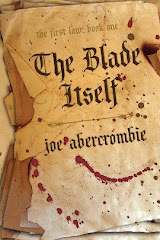.jpg)

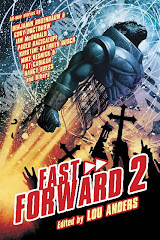
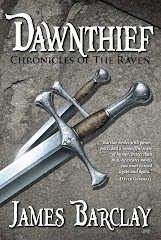
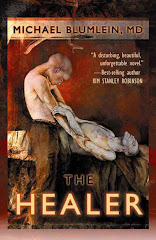
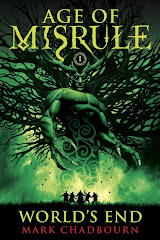.jpg)
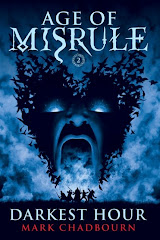

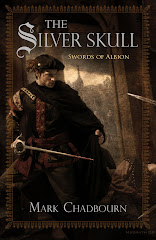


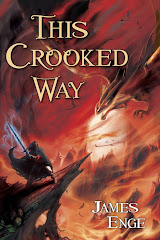
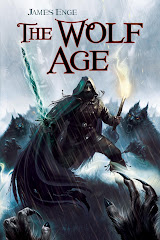


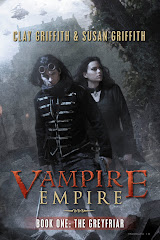
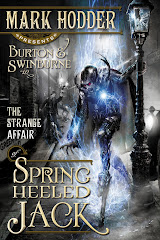


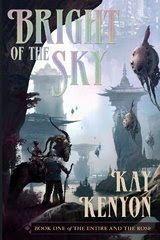.jpeg)
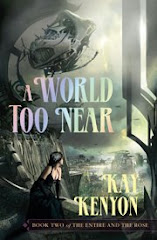.jpg)
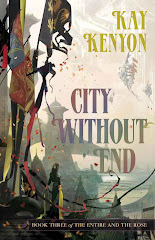

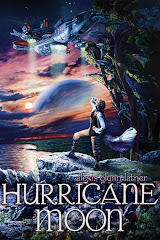
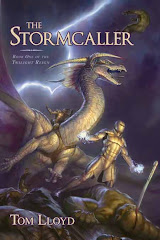
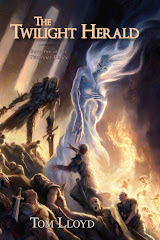
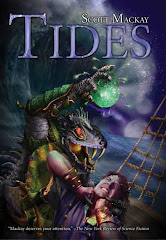

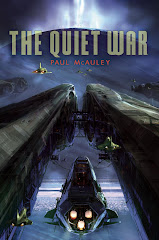
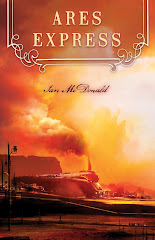
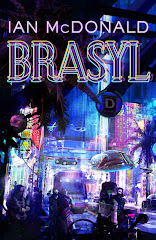

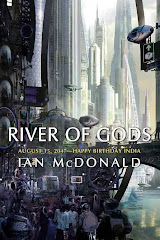.jpg)




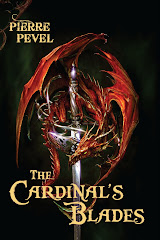


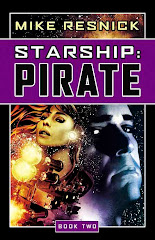
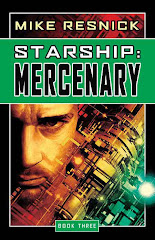

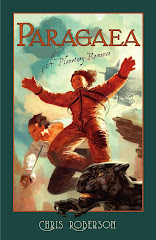
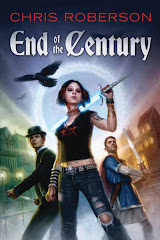
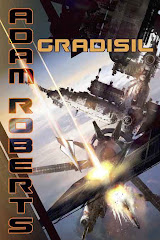

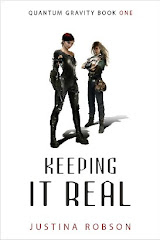.jpg)
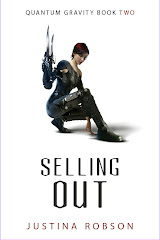
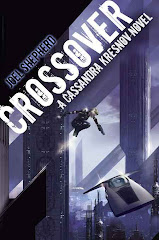
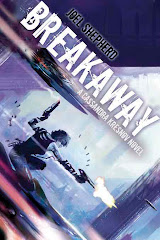
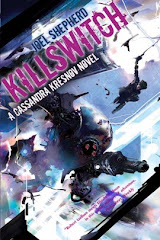.jpg)

